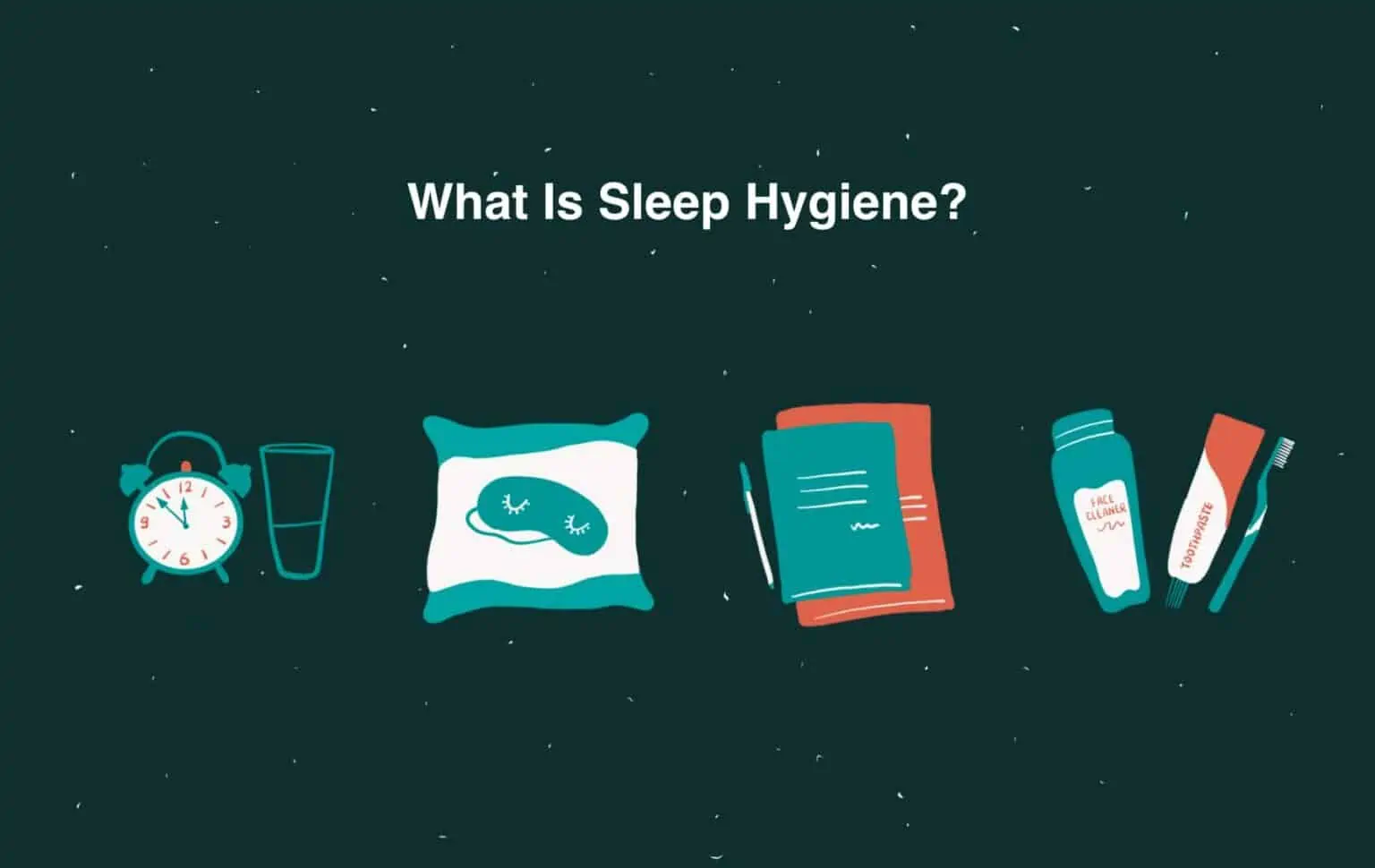In today’s fast-paced world, good sleep hygiene has become a critical part of maintaining overall health and well-being. With so many distractions, stressors, and technology at our fingertips, getting restful, high-quality sleep is often easier said than done. However, improving your sleep hygiene—the habits and practices that promote consistent, restful sleep—can make a huge difference in the quality of your nightly rest.
In this article, we will explore the importance of sleep hygiene, share essential tips to improve your sleep habits, and explain how these practices can contribute to better physical, mental, and emotional health.
What is Sleep Hygiene?

Sleep hygiene refers to the set of habits and environmental factors that promote healthy sleep patterns. These include practices that help you fall asleep faster, stay asleep longer, and wake up feeling refreshed. Good sleep hygiene can involve things like your sleep environment, bedtime routine, lifestyle choices, and daily habits that either support or hinder restful sleep.
Sleep hygiene is important because poor sleep not only affects your mood and energy levels but also contributes to a variety of health issues, including increased risk of obesity, heart disease, diabetes, and mental health disorders. Improving your sleep hygiene is one of the most effective ways to enhance your overall well-being.
Why is Sleep Hygiene Important?
Quality sleep is essential for various aspects of health. Here’s why sleep hygiene matters:
-
Improves Physical Health: Sleep is crucial for bodily functions like immune function, muscle repair, and cell regeneration. Consistent, restful sleep strengthens the immune system and supports long-term physical health.
-
Enhances Cognitive Function: Sleep helps consolidate memories, improves concentration, and sharpens decision-making skills. Without enough sleep, cognitive performance can significantly decline, affecting productivity and mental clarity.
-
Regulates Emotions and Mood: Poor sleep is linked to mood disorders such as anxiety, depression, and irritability. Adequate sleep improves emotional regulation, helping you feel more balanced and calm.
-
Boosts Immune Function: Sleep is a restorative process that allows your body to recover and strengthen its immune system. Poor sleep weakens your immune defenses, making you more susceptible to infections.
-
Supports Healthy Weight: Lack of sleep can disrupt hormones that regulate appetite, leading to overeating and cravings for unhealthy foods. Sleep hygiene helps keep hunger-regulating hormones in check, contributing to healthy weight management.
Essential Tips for Better Sleep Hygiene
To improve your sleep hygiene, here are some key tips that can help you develop healthy sleep habits:
1. Create a Consistent Sleep Schedule
- Go to bed and wake up at the same time every day, even on weekends. This helps regulate your body’s internal clock (circadian rhythm), making it easier to fall asleep and wake up naturally.
- Establishing a consistent sleep schedule helps reinforce your body’s natural sleep-wake cycle, leading to better-quality rest.
2. Develop a Relaxing Bedtime Routine
- Unwind before bed by engaging in calming activities like reading, meditating, or taking a warm bath. Avoid stimulating activities like working, exercising, or watching intense TV shows close to bedtime.
- Consider practices like deep breathing, progressive muscle relaxation, or gentle yoga to reduce stress and signal your body that it’s time to wind down.
3. Optimize Your Sleep Environment
- Make your bedroom conducive to sleep by ensuring it’s dark, cool, and quiet. A temperature between 60°F and 67°F (15°C to 20°C) is ideal for most people.
- Use blackout curtains to block light and reduce noise with earplugs, a white noise machine, or noise-canceling headphones. Consider investing in a comfortable mattress and pillows that support your preferred sleep position.
4. Limit Exposure to Screens Before Bed
- The blue light emitted by phones, tablets, computers, and TVs can interfere with your body’s ability to produce melatonin, the hormone responsible for sleep. Avoid screens at least 30 minutes to an hour before bedtime.
- If you must use your devices, consider using blue light-blocking glasses or night mode on your phone to minimize the impact.
5. Be Mindful of Food and Drink
- Avoid large meals, caffeine, and alcohol close to bedtime. Caffeine is a stimulant that can stay in your system for hours, making it harder to fall asleep. Alcohol may initially make you drowsy but can disrupt sleep cycles, leading to fragmented rest.
- Drink enough water during the day but reduce fluid intake before bed to avoid waking up for bathroom trips during the night.
6. Get Regular Exercise
- Regular physical activity promotes better sleep by reducing anxiety and improving overall health. However, avoid intense exercise too close to bedtime, as it can be stimulating.
- Aim to complete your workout at least 3 hours before bed to allow your body time to wind down.
7. Manage Stress and Anxiety
- Chronic stress and anxiety can significantly disrupt sleep. Consider incorporating mindfulness practices like meditation, journaling, or gratitude exercises into your daily routine to help manage stress.
- Cognitive-behavioral therapy for insomnia (CBT-I) is an evidence-based treatment that can be particularly effective in addressing sleep problems related to anxiety, stress, or depression.
8. Limit Naps During the Day
- Napping can be a great way to recharge, but excessive daytime sleep can interfere with nighttime sleep, especially if naps are long or occur too late in the day.
- If you need to nap, aim for a short nap of 20-30 minutes earlier in the day to avoid disrupting your nighttime rest.
9. Seek Professional Help if Necessary
- If you consistently struggle with sleep despite following good sleep hygiene practices, you may be dealing with a sleep disorder such as insomnia, sleep apnea, or restless leg syndrome.
- Consult a healthcare professional or sleep specialist who can help diagnose and treat underlying conditions that may be affecting your sleep.
Benefits of Good Sleep Hygiene
By improving your sleep hygiene, you can enjoy a variety of benefits:
- Improved Mood and Emotional Health: With better sleep, you’ll feel more positive, energetic, and resilient to stress, which enhances overall emotional health.
- Enhanced Focus and Cognitive Function: Proper rest improves concentration, memory retention, and decision-making skills, allowing you to perform better in work, school, and daily activities.
- Stronger Immune System: A well-rested body can fight off infections more efficiently, reducing your risk of getting sick.
- Better Physical Health: Sleep hygiene supports cardiovascular health, hormone regulation, and weight management, helping you feel healthier and more energized.
Conclusion
Good sleep hygiene is not just about getting enough sleep—it’s about getting the right kind of sleep. By developing healthy sleep habits, creating a conducive environment, and managing stress, you can improve both the quality and duration of your sleep. The benefits of better sleep go far beyond just feeling rested; they impact your physical health, mental clarity, and emotional well-being.
Whether you’re struggling with occasional sleepless nights or chronic sleep problems, improving your sleep hygiene can help you sleep more soundly and wake up feeling more refreshed, ready to face the challenges of the day. So, take the time to prioritize your sleep and embrace the healthy habits that will lead to a better night’s rest.



